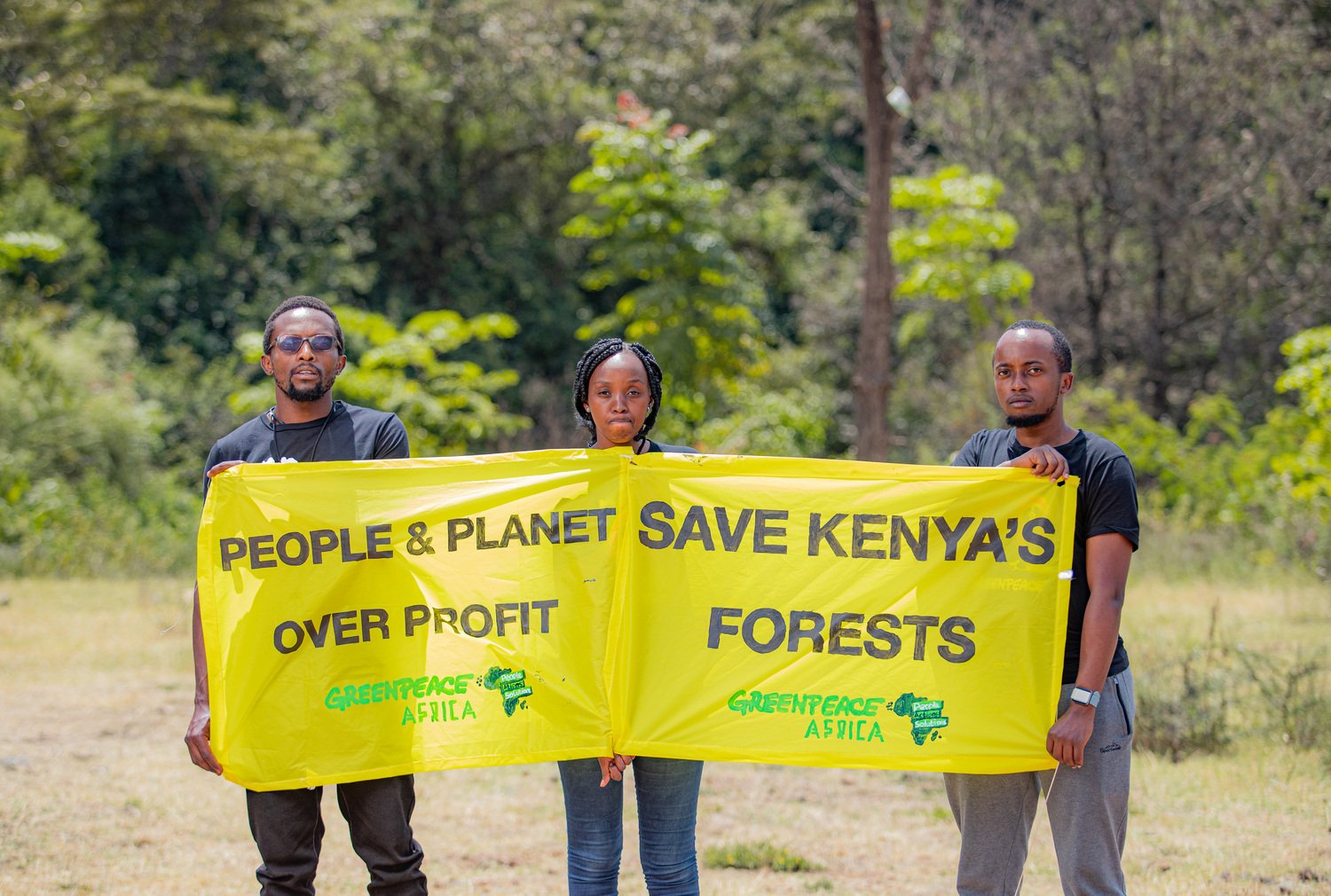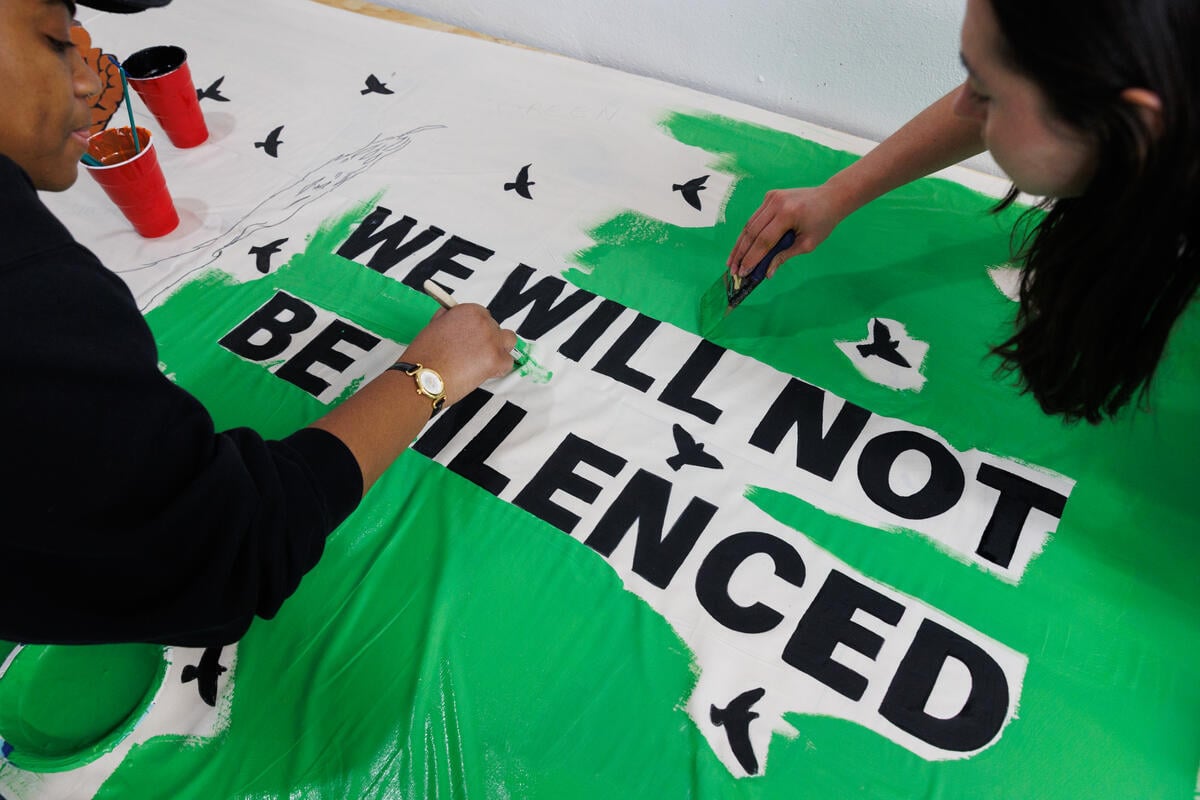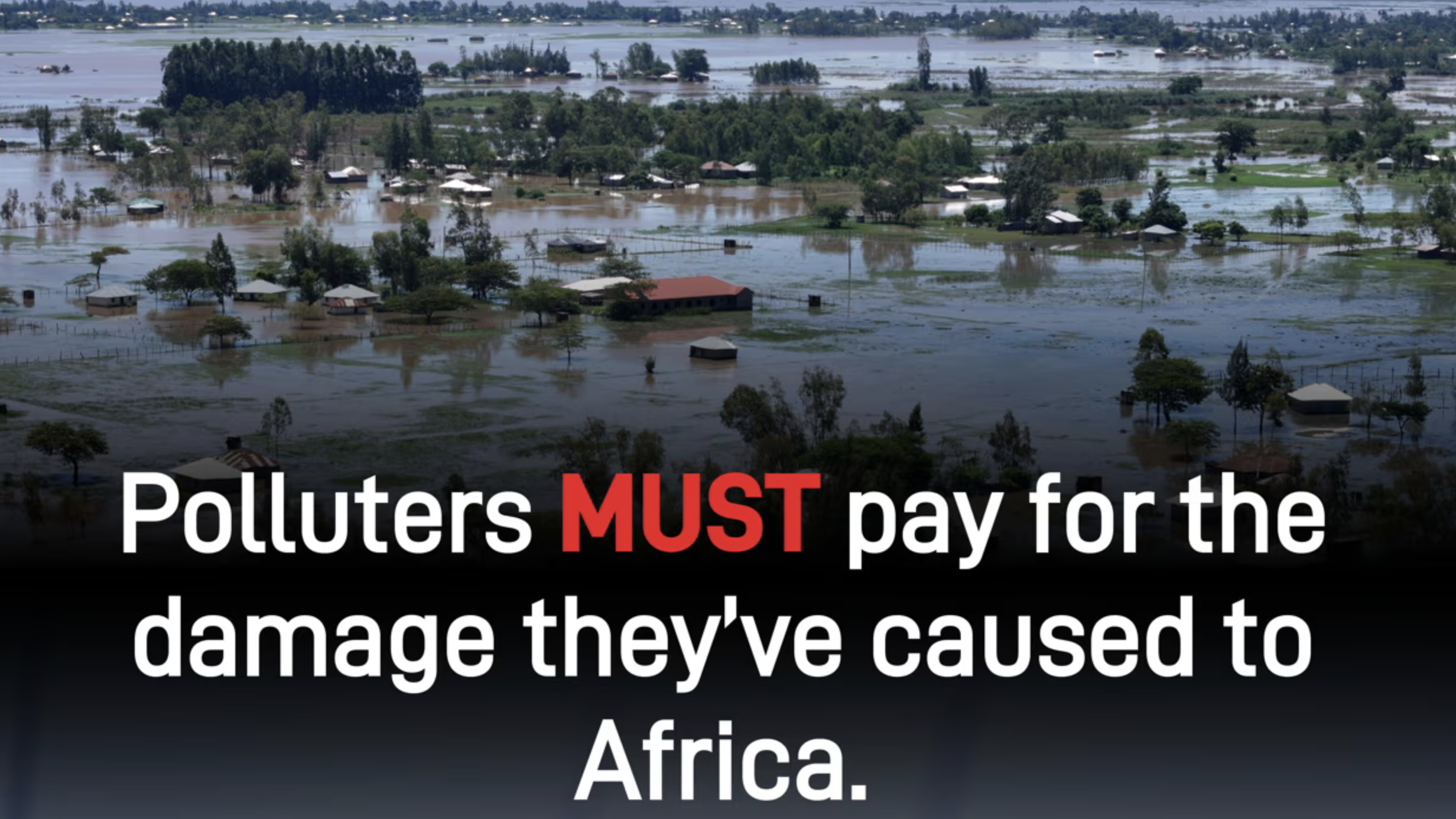Nairobi, 28 June 2019 – Greenpeace Africa and members of the deCOALonize coalition have today met with Chinese Ambassador Wu Peng. This was a follow up on the letter delivered to the Chinese Embassy on 12 June 2019 asking Chinese corporations to stop investing in Lamu and Kitui coal projects and instead invest in renewable energy.
The delegation made some demands among them, no coal plant in Kenya, China as a lender must reallocate funding towards renewable energy developments, and that the Chinese Embassy must follow up with ICBC and other potential coal investors in Kenya with the intention to halt any and all interventions and investments in coal. The Chinese Ambassador has confirmed that the Lamu Coal Power Plant is not economically and commercially viable.
He further said:
“It has been and always will be that it is the people of Kenya who can decide whether there would be a coal power plant or not.”
We are committed to reduce coal usage in the world.”
“Globally, climate crisis remains one of the biggest challenges facing humankind. China which is directly linked to these projects is divesting from coal. Studies have shown that the social, environmental and economic costs of running coal-fired power plants far exceed the benefits. Why should China invest in dirty coal and pollute Lamu, a UNESCO World Heritage site,” said Greenpeace Africa’s Executive Director, Njeri Kabeberi.
China is the world’s largest greenhouse gas emitter and consumer of coal and globally the largest solar technology manufacturer. Although China has surpassed its projected 2020 carbon targets, the global Climate Action Tracker Reports indicate that China’s national actions are not yet consistent with limiting warming to below 2°C, let alone 1.5°C.
According to research carried out by Greenpeace, if the Lamu coal plant goes ahead, 10 different locations in Kenya and Tanzania; Garissa, Voi, Makueni, Moshi, Lushoto, Matuu, Hedaru, Mazindwe, Korogwe and Mombasa would be affected by extreme pollution. Areas as far as Garissa in the Northwest and Voi will be the most affected.
“Burning coal to produce electricity causes massive air pollution which can cause cancer, stroke, heart disease and more than 8 million deaths worldwide per year. Kenya cannot afford to ignore this anymore. The Kenyan government must face the truth that we are no longer in the business of managing pollution. When it comes to the air that we breathe, we can’t afford to delay action. There is an urgent need to transition from polluting fossil fuels and opt for clean energy solutions,” continued Kabeberi.
According to a study carried out by Environmental Groups, it is estimated that more than 2,000 South Africans die prematurely in Mpumalanga and Gauteng provinces as a result of coal fired power plant pollution. Kenya does not want to go down this route.
“Kenya offers rich resources for sustainable electricity generation. Kenya is endowed with enormous solar, wind and geothermal sources. The unexploited geothermal power potential is estimated to be in the range of 4000–8000 MW enough to power Kenya’s economy. The Kenyan government needs to facilitate renewable energy development instead of exploring dirty energy sources that are outdated and are quickly becoming obsolete,” said deCOALonize Campaign Coordinator, Omar Elmawi.
On Wednesday 26 June 2019, the National Environmental Tribunal (NET) cancelled the Environmental Impact Assessment (EIA) license that was issued by the National Environmental Management Authority (NEMA) on the Lamu Coal plant, calling for a new EIA exercise. This is a clear indication that public participation (a right guaranteed under the Kenya Constitution 2010) was not adequately conducted and that the project seeks to benefit a few individuals at the expense of the Lamu community. Greenpeace Africa and deCOALonize stand in solidarity with Kenyan Activists and the communities of Lamu and Kitui. We say no to coal and yes to investment in renewable energy.
It is unacceptable for Kenya’s Ministry of Energy, private investors and its representatives to water down environmental concerns backed by authenticated scientific and economic research evidence – in the hope of making money for investors. It is time to stand against the greed perpetuated by a few individuals and investors who are driven by profits. Kenyans are saying “Not in our Country!”
Notes to the Editor:
- Read on Greenpeace Research on Lamu Coal here
Media contact:
Hellen Dena, Greenpeace Africa – Communication Officer, [email protected], +254 717 104144
Omar Elmawi, deCOALonize Coordinator, [email protected], +254 780 343 432



